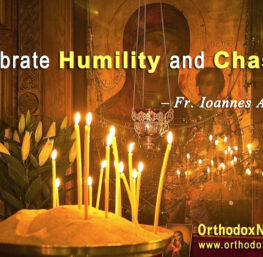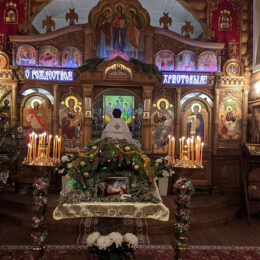Acton.org | John Couretas | Aug. 6, 2008
The world justly celebrates the life of Alexander Solzhenitsyn, a great man whose work and witness seems most aptly summed up in a single word: prophetic. But, as prophets are in a habit of doing, he made some people feel the needle who were sure they didn’t deserve it. This was especially so for Western liberals who, in the eyes of Solzhenitsyn, were indifferent to — if not supportive of — communist oppression.
Indeed, there was something in Solzhenitsyn to offend just about anyone, East or West, liberal or conservative, who denied or avoided spiritual realities and moral truths in favor of comfort, worldly success and a too easy accommodation with anything that smacked of lies. The writer died on Aug. 3 in Moscow at the age of 89.
Solzhenitsyn had a reputation as “a prophet of freedom,” according to the Rutland (Vt.) Herald, published not far from where Solzhenitsyn took up residence after his banishment from the Soviet Union. But the paper drily observed that “interest in his work and his pronouncements fell off, and though the Russian people celebrated his return in 1994, the severity of his moral judgments about his homeland and about the West caused his influence to wane.” The New York Times obituary, citing Solzhenitsyn’s 1978 Harvard address, said the writer’s “rare public appearances could turn into hectoring jeremiads.” The Los Angeles Times, without offering evidence, decreed that Solzhenitsyn’s reputation “dimmed after his repatriation and his diatribes on the denigration of his nation that were at times tainted with paranoia, anti-Semitism and bigotry.”
What, exactly, was the content of these “diatribes” and “jeremiads”? At Harvard, Solzhenitsyn denounced the “the Western way of life” for its shallowness and mass produced culture, and heaped scorn on an epidemic of “TV stupor and … intolerable music.” (Post-communist Russia has enthusiastically embraced this culture.) But he reserved his sharpest criticism for Western political culture and its secularized intelligentsia, a word of Russian coinage that with Solzhenitsyn carried associations of an effete, self-serving and mediocre subculture. He charged that Western society “has lost its civil courage, both as a whole and separately, in each country, each government, each political party and of course in the United Nations. Such a decline in courage is particularly noticeable among the ruling groups and the intellectual elite, causing an impression of loss of courage by the entire society.”
Solzhenitsyn accused the American anti-war movement of complicity in the genocides that followed in Southeast Asia after the U.S. military withdrew from Vietnam. He asked: “If a full-fledged America suffered a real defeat from a small communist half-country, how can the West hope to stand firm in the future?” And he laid a heavy charge: “The communist regime in the East could stand and grow due to the enthusiastic support from an enormous number of Western intellectuals who felt a kinship and refused to see communism’s crimes.”
. . . more



